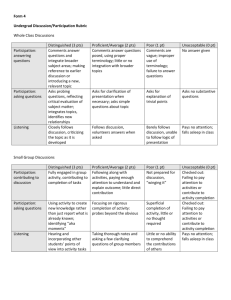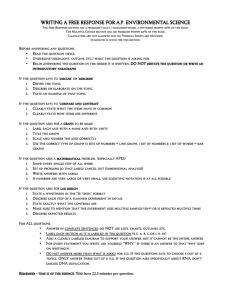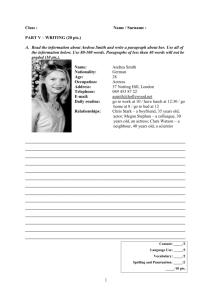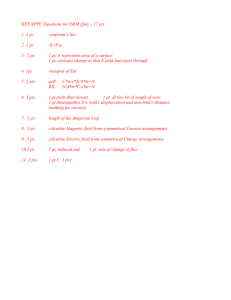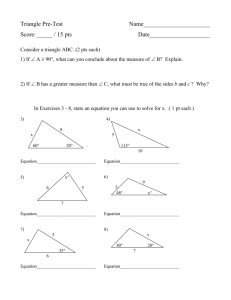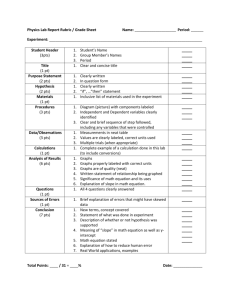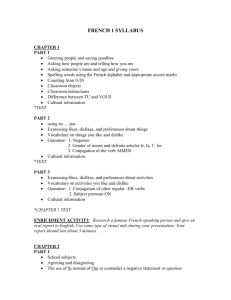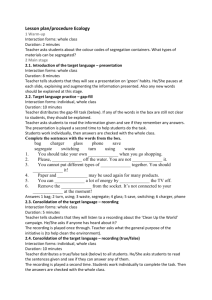S5. Lecture-Free Classroom-Instructor-Graduate
advertisement
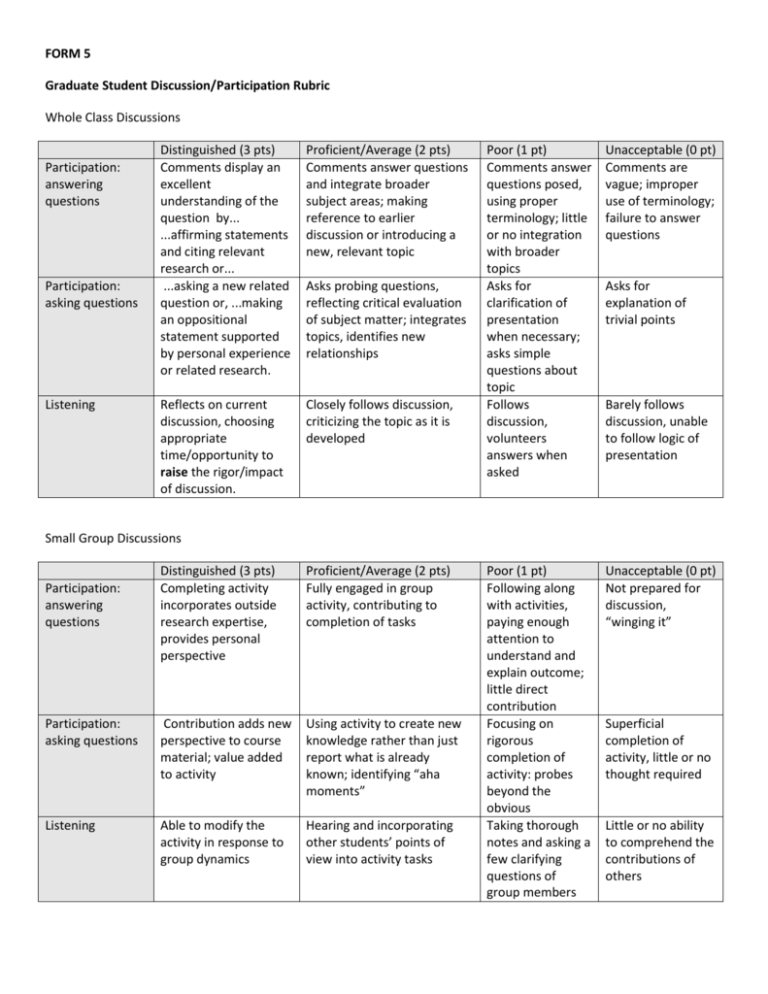
FORM 5 Graduate Student Discussion/Participation Rubric Whole Class Discussions Participation: answering questions Participation: asking questions Listening Distinguished (3 pts) Comments display an excellent understanding of the question by... ...affirming statements and citing relevant research or... ...asking a new related question or, ...making an oppositional statement supported by personal experience or related research. Proficient/Average (2 pts) Comments answer questions and integrate broader subject areas; making reference to earlier discussion or introducing a new, relevant topic Reflects on current discussion, choosing appropriate time/opportunity to raise the rigor/impact of discussion. Closely follows discussion, criticizing the topic as it is developed Asks probing questions, reflecting critical evaluation of subject matter; integrates topics, identifies new relationships Poor (1 pt) Comments answer questions posed, using proper terminology; little or no integration with broader topics Asks for clarification of presentation when necessary; asks simple questions about topic Follows discussion, volunteers answers when asked Unacceptable (0 pt) Comments are vague; improper use of terminology; failure to answer questions Poor (1 pt) Following along with activities, paying enough attention to understand and explain outcome; little direct contribution Focusing on rigorous completion of activity: probes beyond the obvious Taking thorough notes and asking a few clarifying questions of group members Unacceptable (0 pt) Not prepared for discussion, “winging it” Asks for explanation of trivial points Barely follows discussion, unable to follow logic of presentation Small Group Discussions Distinguished (3 pts) Completing activity incorporates outside research expertise, provides personal perspective Proficient/Average (2 pts) Fully engaged in group activity, contributing to completion of tasks Participation: asking questions Contribution adds new perspective to course material; value added to activity Using activity to create new knowledge rather than just report what is already known; identifying “aha moments” Listening Able to modify the activity in response to group dynamics Hearing and incorporating other students’ points of view into activity tasks Participation: answering questions Superficial completion of activity, little or no thought required Little or no ability to comprehend the contributions of others
